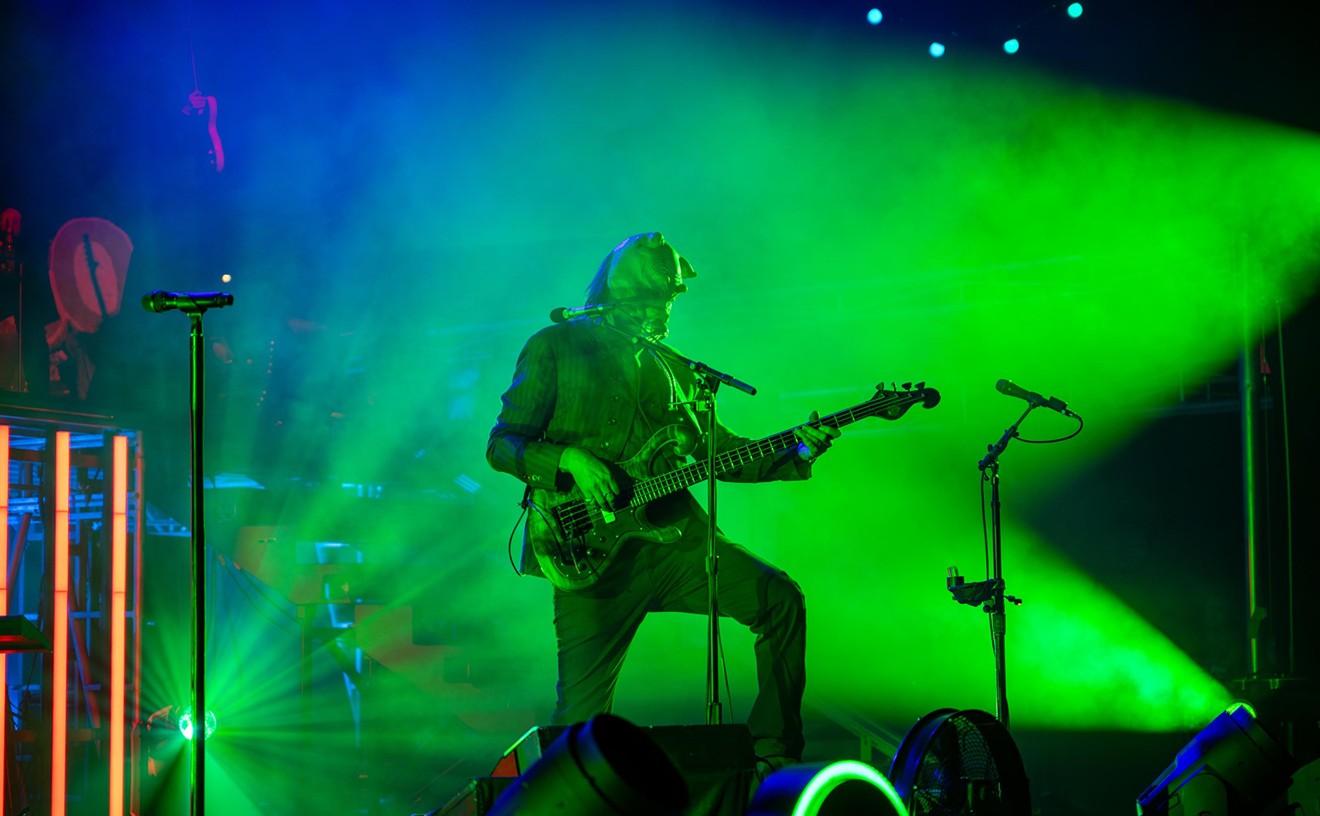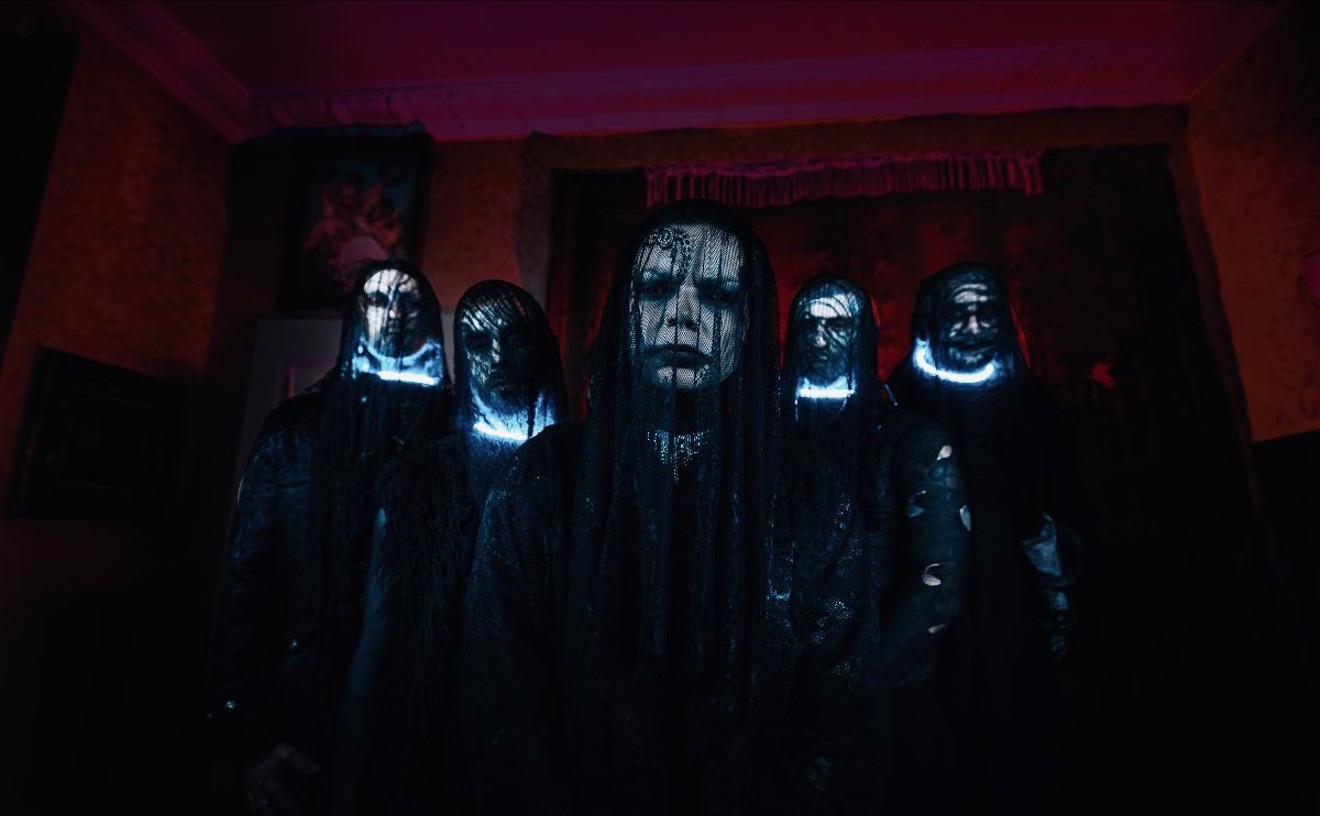Caught Nouvelle Vague last night at the Bluebird and want to know more about the act? Your wish is our command. We recently caught up with Marc Collin and fired a few questions at him about the projects musical goals, the act's artistic approach to re-contextualizing songs and how the studio project differs from the live band. First, though, a little background.
Collin and Olivier Libaux are two guys from Paris who came up with the idea of taking classic New Wave, post-punk and punk songs and giving them alternate arrangements. For each, they also recruited a female French singer not thoroughly familiar with those songs to do vocals. Maintaining the emotional core of each song, the pair put together intriguing versions of well-known songs like "God Save the Queen" by The Sex Pistols and "Road to Nowhere" by The Talking Heads. Whether toying with the blues, Bossa Nova, jazz or lounge as a form or merging them together, Nouvelle Vague's approach is not tongue in cheek but rather one of reverence for the strength of songwriting in the original composition.
Westword (Tom Murphy): How did you first come up with the idea of doing alternate versions of New Wave pop songs? It seems like a supremely post-modern endeavor.
Marc Collin: It's a lot of things, but basically, I was a fan of New Wave when I was young. One day I just realized that a lot of those songs were beautifully written, and they have become classics in a way. I wanted to prove that if you're coming from punk or post-punk, you can write beautiful music. So I wanted to do a kind of tribute to these bands, but change completely the arrangements.
WW: Why do you play bossa nova versions of those songs instead of some other style of music? Is that part of your musical background in any way?
MC: Not really. The idea was I wanted to imagine a girl could sing those parts and the music could be rewritten without guitar. We could keep the melancholy of the song in a completely different way. We are coming from pop, not Brazillian musicians. So we had a Bossa Nova but done by two French people in Paris. We're trying to play with this genre of music but doing it in our own way.
WW: You're calling your project Nouvelle Vague. Was the new wave of French cinema at all an influence on what you do in this project?
MC: Not directly. But I'm a big fan of cinema, and I'm a fan of Jean-Luc Godard. We work in a free way, also. We like all those films and the actresses and the beauty of all of that stuff. We chose the name because it was a translation of both Bossa Nova and New Wave.
WW: For the vocals, you often bring in women who have never heard the song in question: This strikes me as a kind of re-contextualization as employed by the Situationists. Were those ideas at all an influence on what you're trying to do with the songs you perform?
MC: For sure. It's the best way to bring something fresh and new into the music. Because the singers didn't know anything about the songs, they did not try to imitate the original singer. They learned the lyrics and the melody, and they were free to do whatever they want. They did their own thing. Now, we don't keep exactly with that recipe but we choose girl singers who, even if they know the songs, aren't big fans of the songs and know them by heart already.
WW: Listening to your most recent album, it sounds like you're doing very respectful covers of the songs you choose. Is there any element of humor in what you're doing with the music? I get the impression you're playing with specific elements to get interesting results like an old blues or jazz musician would put his or her personal stamp on a standard.
MC: The idea was to imagine little scenarios, little scripts of every song. For "Guns of Brixton," we imagined an old lady in an armchair seeing all these riots and demonstrations in the streets. She's singing the song like she's saying, "I know, I know. You're not changing anything." So we're trying each time to invent something not only about music but in creating a world in a way.
WW: Have you tried to bring classic French pop singers like Francoise Hardy or a singer like Margo Guryan in to perform on any songs?
MC: No, because I think it's better to work with young people that don't really know these songs. I'm not sure if Francoise Hardy would understand ... she would understand, but I don't know what she could really bring to these songs that would make them fresh.
WW: For your current album, you got Martin Gore, Ian McCulloch and Barry Adamson to record with you. How did you make that happen, and what was it like working with each of them?
MC: It was an incredible experience. We just realized that we got really good feedback from some of those people and we thought that maybe we could ask them to do a duet. It would be nice for them also to sing with a young French girl, so we contacted their management and let them hear what we had done so far. Most of them said, "Yeah, that's great; we like Nouvelle Vague anyway. We like what you did with those songs."
WW: Do you ever bring any of the New Wave and punk artists you've covered to perform live with you?
MC: Yeah, we had Ian McCulloch in Paris, Barry Adamson in London, Paul Haig from Josef K.
WW: How is your live show different, beyond the obvious omission of the more famous artists, in terms of personnel, from your recordings?
MC: It's really different because we are not really a band. It's a project, and I'm doing a lot of things on my own in the studio, and Olivier can play guitar and do other stuff. We do a lot of things ourselves and call in the singers afterward. But it's interesting because we can't do the same thing live as we did in the studio, so we have to do something different and that makes it fresh for us again to perform live.
We also had to find two girls who can represent all the girls. I think the girls are creating a kind of cabaret game and so there's some crazy pop, and really emotional pop and anything can happen. It's really wild sometimes. So for sure it's not as loungey as you might expect.
We're trying to do something original. It's not really a rock show, a pop show, jazz or Bossa Nova. It refers to a lot of different styles. It can be blues, it can be reggae, it can be Bossa Nova--completely differently styles done in our own way. We're trying to bring something new and good to the songs.











